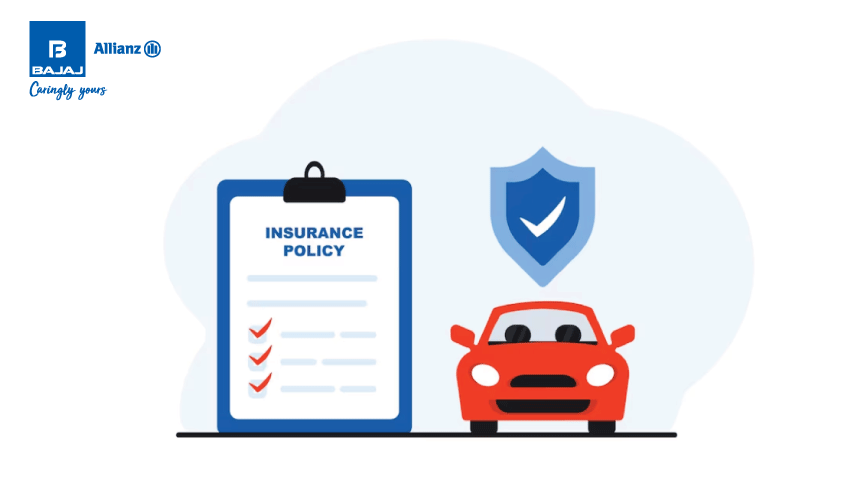In the world of car insurance, two terms might seem similar but have distinct meanings: non-renewal and cancellation. Knowing the difference between these terms is crucial for every car owner to manage their insurance journey effectively. So, let's dive into the world of car insurance to understand what non-renewal and cancellation really mean.
What is Car Insurance Non-Renewal?
Imagine you have a
car insurance policy that is about to expire. When the time comes to renew it, the insurance company might decide not to continue with the same policy. This is what we call non-renewal. It's like saying goodbye to your old policy and looking for a new one.
Why Does Car Insurance Non-Renewal Happen?
There are several reasons why car insurance might not be renewed:
Driving Record:
If you've had a lot of accidents or traffic violations, your insurance company might see you as a high-risk driver. In such cases, they might choose not to renew your existing policy.
Location:
Insurance companies often have specific areas where they provide coverage. If you move to an area outside of their coverage zone, they might not be able to renew your policy.
Changes in Coverage:
Sometimes, insurance companies change their policies and no longer offer the same coverage options. If your current policy is affected by these changes, you might decide not to renew it.
Personal Choices:
As a policyholder, you might decide that you no longer need as much coverage as before. In such cases, you might choose not to renew your policy or to switch to a different one that better suits your needs.
What is Car Insurance Cancellation?
Now, let's talk about car insurance cancellation. Unlike non-renewal, which happens when a policy expires, cancellation occurs before the policy's expiration date. It's like ending your insurance policy before it's supposed to end.
Cancellation can happen for various reasons as well. It might be initiated by either the insurance company or the policyholder.
Reasons for Car Insurance Cancellation
Unsafe Driving History:
If you've been involved in multiple accidents or have a history of
traffic violations, your insurance company might cancel your policy.
Suspension of Vehicle Registration:
If your vehicle's registration is suspended due to illegal activities like driving under the influence, your insurance company might cancel your policy.
Deceptive Claims:
If you're caught making fraudulent claims, such as staging accidents or providing false information, your insurance company might cancel your policy.
Hiding Information:
If you fail to disclose important information about your vehicle, such as its use for commercial purposes, your insurance company might cancel your policy.
Reasons for Policyholder-Initiated Car Insurance Cancellation
Sudden Relocation:
If you move to a new location where your current insurance company doesn't provide coverage, you might choose to cancel your policy and find a new one.
No Longer Driving:
If you no longer drive or own a vehicle, you might decide to cancel your car insurance policy.
Choosing Another Policy or Provider:
If you find a better insurance policy or switch to a different insurance provider, you might choose to cancel your current policy.
Vehicle Sale:
If you sell your car to someone else, you might choose to cancel your car insurance policy since you no longer need coverage for that vehicle.
Stolen or Lost Vehicle:
If your
car is stolen or lost, you might choose to cancel your car insurance policy, especially if you're not covered under a
comprehensive insurance plan.
Key Differences Between Car Insurance Non-Renewal and Cancellation
Timing:
Non-renewal happens when a policy expires, while cancellation occurs before the policy's expiration date.
Initiation:
Non-renewal can be initiated by either the insurance company or the policyholder, while cancellation is usually initiated by the insurance company but can sometimes be initiated by the policyholder.
Policy Premium:
Non-renewal does not directly affect the policy premium of the next policy cycle, while cancellation might result in a higher premium for the next policy.
Buying Options:
After non-renewal, you can usually buy the same policy again or choose a different policy from the same insurer, while after cancellation, the initial insurer may not provide another car insurance policy.
Reasons:
Non-renewal can happen due to various factors like changes in coverage or personal choices, while cancellation is often due to factors like unsafe driving history or deceptive claims.
Conclusion
While car insurance non-renewal and cancellation might sound similar, they have distinct meanings and implications. Non-renewal occurs when a policy expires and is not renewed, while cancellation occurs before the policy's expiration date. Understanding the difference between these terms is essential for every car owner to make informed decisions about their insurance coverage. Whether your car policy is not renewed or cancelled, it's important to
renew your car insurance online to ensure that you're still protected while driving on the road.
*Standard T&C Apply
*Insurance is the subject matter of solicitation. For more details on benefits, exclusions, limitations, terms and conditions, please read the sales brochure/policy wording carefully before concluding a sale.
 Service Chat: +91 75072 45858
Service Chat: +91 75072 45858


